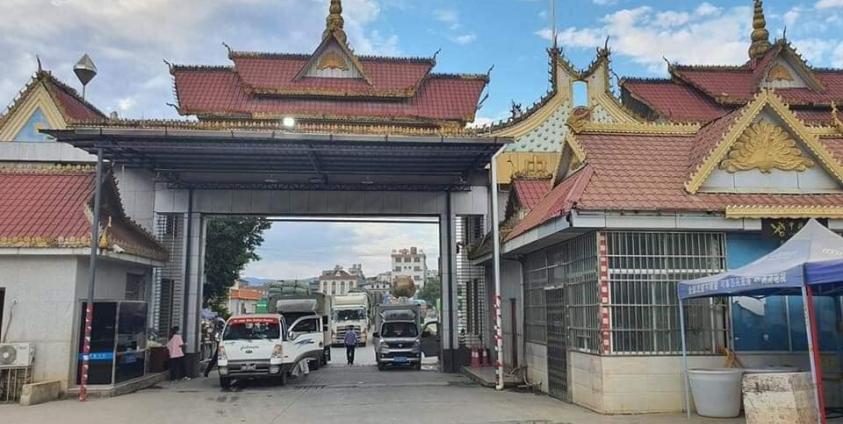The Chinese government has imposed new restrictions on Burmese wholesale distributors on the China border, in a move that Burmese nationals say makes it difficult for them to continue their work.
On August 25, China introduced a law in Jiegao—a free-trade zone just under four miles south of Ruili in Yunnan Province—allowing only Chinese nationals to run wholesale stores there. It is across the border from Muse in Shan State.
While Chinese nationals can have a Burmese counterpart in their wholesale operations, the registration fee for the Burmese national is 500,000 yuan—nearly 100 million kyat, or more than US$73,000.
Wholesalers from Burma are urging the respective authorities to build a venue for them to sell their goods in Muse, on the Shan side of the border.
Zaw Min, the Burmese owner of Cherry Myae wholesale shop in Jiegao, said that he would agree to China’s guidelines, but recommended that the registration fee be split with the Chinese partner.
“A 500,000 yuan registration fee is unfair to us. It’s better if we can open wholesale shops in our country,” he told SHAN. “We want the authorities to make a venue for wholesale shops as soon as possible,” he said, referring to a venue in Muse.
Chinese authorities have also limited registration of Burmese wholesalers in Jiegao to 10 days, a timeframe which is too short to come up with the fees needed, locals say. The wholesalers have asked that this be extended, and to allow workers who have passed a health check—and have the documentation to prove it—to cross the border.
“Creating a venue in Muse is the best solution for us. We want to demand that our government to build a venue in Muse for wholesales,” another vendor told SHAN.
Wholesaler Zaw Min said that the move would create more security and opportunity for Burmese nationals.
“I think if wholesales were moved to Burma, it would be better for local people. Laborers would not be arrested by the Chinese police,” he explained.
In accordance with the recent Chinese government announcement, Burmese-owned wholesale businesses, transportation gates, express transportation gates and other enterprises must have exited the Jiegao and Ruili areas by August 28, unless they were able to obtain official documentation from the Chinese authorities.
Those who remain will be required to jointly register with their Chinese partner.
Those who fail to meet the new requirements will be handed a fine of 5,000-10,000 yuan ($730-$1,460), lose their sales license, and face possible arrest.







